Graphic Novels Tells the Story of David Bowie, Billie Holiday, John Coltrane, Jean-Michel Basquiat & Other Artists and Thinkers
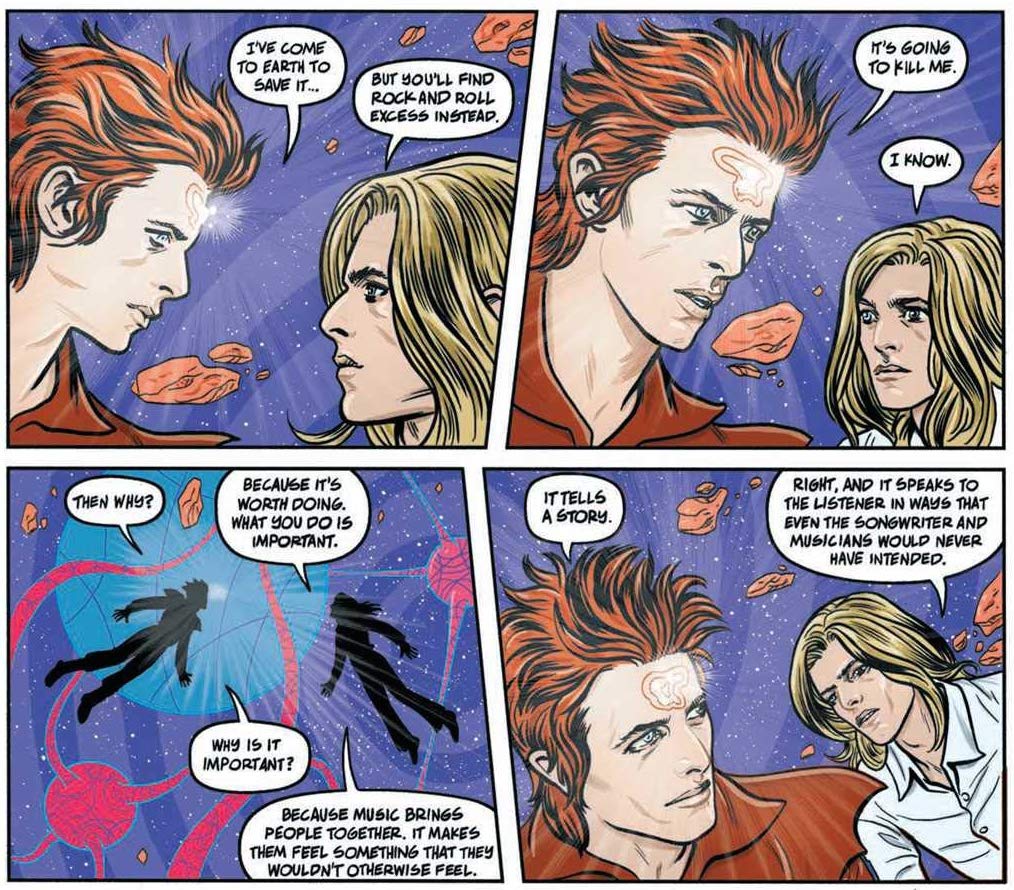
If you're fascinated by certain artists and thinkers, you can learn about them from books. Anyone who has a significant cultural or intellectual influence on humanity sooner or later gets a biography written about them, and usually more than one. But how many get their own graphic novels? The versatility of the "comic book," long unsuspected by many Western readers, has been more and more widely discussed in recent decades. Some of those readers, however, won't believe what can be done with the form until they see what can be done with it. So why not show them the graphic novel on the life of David Bowie published not long ago — and if they remain unconvinced, why not show them the other one?
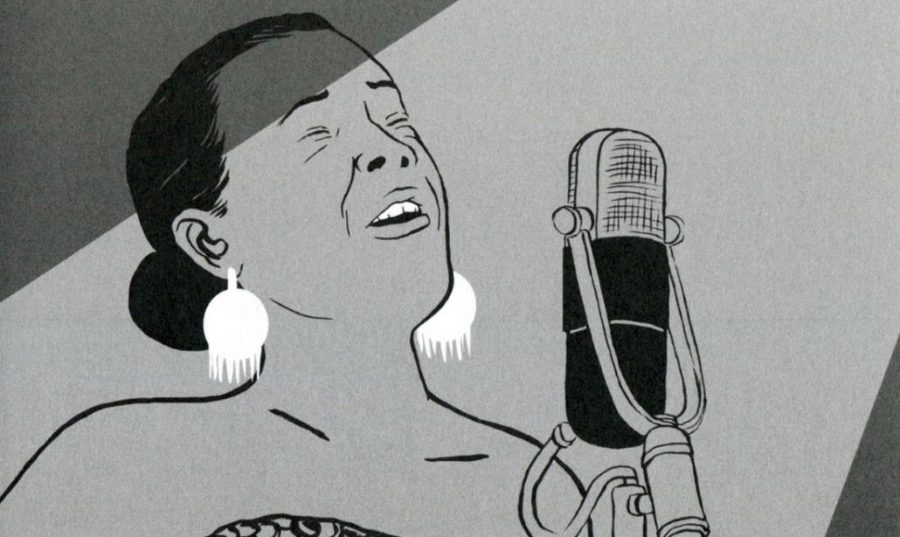
Few subjects demand a visual form as much as Bowie, because of the centrality of his ever-changing appearance to his artistic project as well as the need to evoke the effervescent cultural periods he lived through and did more than his part to define.
Hence the importance of Michael Allred's BOWIE: Stardust, Rayguns, & Moonage Daydreams and Nejib's Haddon Hall as graphic-novel contributions to the growing field of Bowieology. Comic artists and writers have also done well by other figures with places in music history: John Coltrane and Billie Holliday, for example, the subjects of Paolo Parisi's Coltrane and Blues for Lady Day: The Story of Billie Holiday.
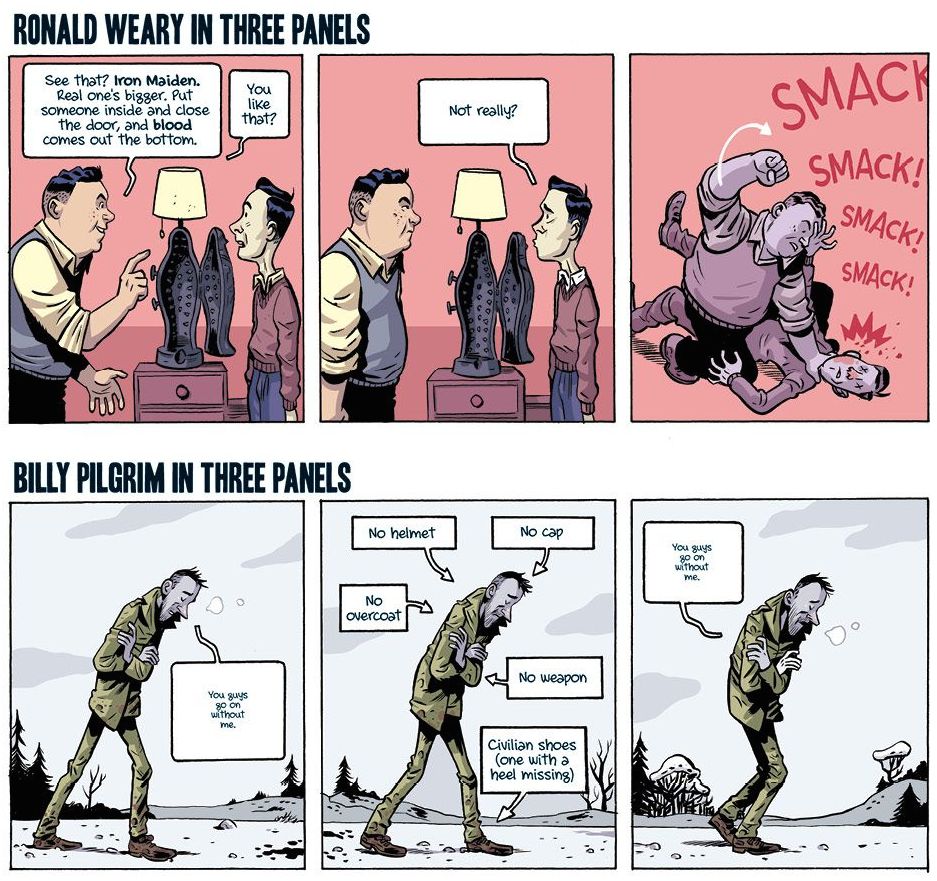
We've previously featured both of those books here on Open Culture, as well as Parisi's Basquiat: A Graphic Novel. Conveying the life of a fellow artist, even one who worked in a different medium, poses a unique set of challenges to the graphic novelist. But it's one thing to depict the work of another, and something else again to visually reimagine it, as in BOOM! Studios' adaptation of Kurt Vonnegut's Slaughterhouse-Five, a novel involving not a few biographical elements in the first place. Other respected works of literature lately to undergo graphic novelization include James Joyce's Ulysses in Rob Berry's Ulysses Seen, and the "weird fiction" of H.P. Lovecraft in the equally weird Lovecraft Anthology.
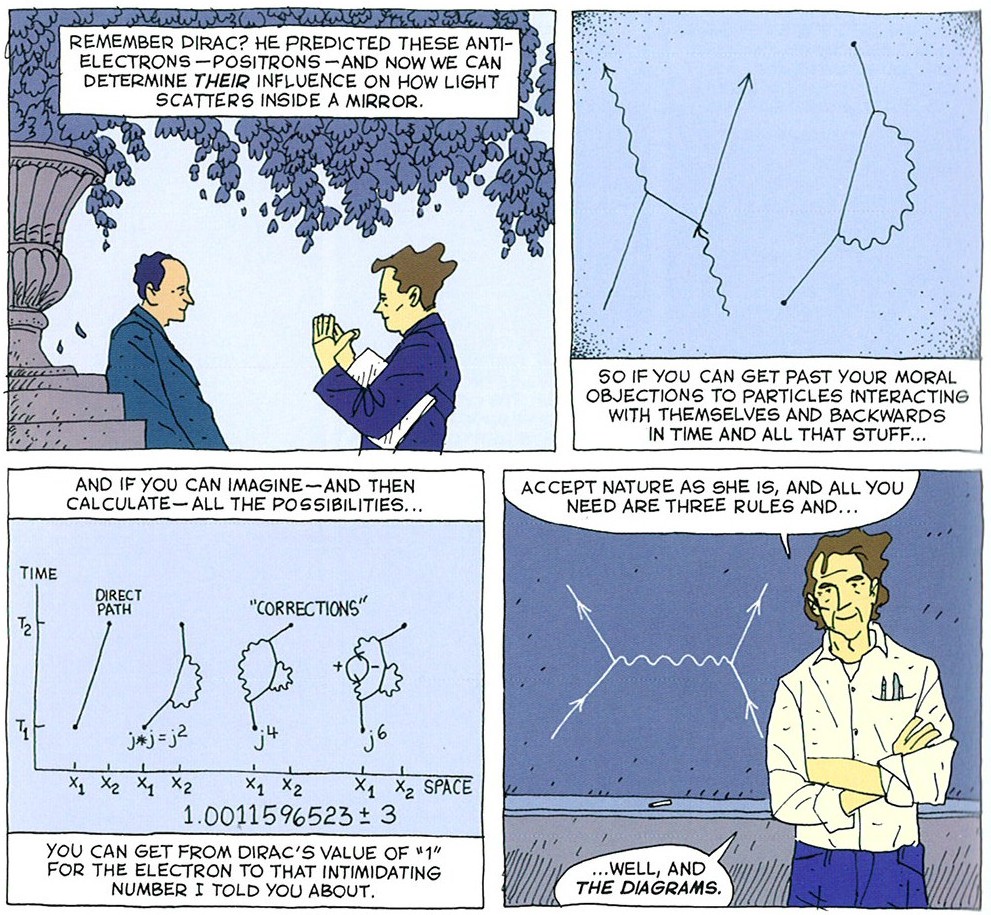
You can also read a graphic-novel adaptation of a source work never completed in the first place — but never completed, one must note, by Salvador Dalí and the Marx Brothers. A collaboration between pop-culture scholar Josh Frank, artist Manuela Pertega, and comedian Tim Heidecker, Giraffes on Horseback Salad realizes on the page a film that not only was never, but quite possibly could never have been made. For readers closer to worldly reality, there's Jim Ottaviani and Leland Myrick's Feynman: A Biography, which tells and shows the life of world-famous theoretical physicist, teacher, and bon vivant Richard Feynman. Never before, surely, has a comic book had to legibly and convincingly depict quantum electrodynamics, safe-cracking, and bongo-paying — to name just three of Feynman's pursuits.
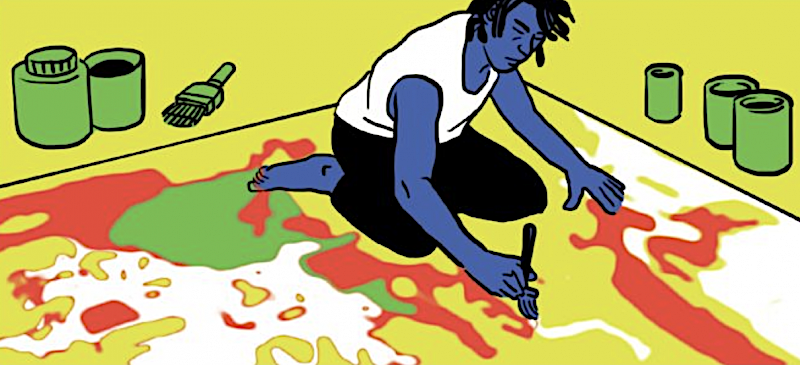
Related Content:
Bound by Law?: Free Comic Book Explains How Copyright Complicates Art
iTunes Terms & Conditions Adapted into a Graphic Novel: Read It Free Online
Anne Frank’s Diary: The Graphic Novel Adaptation
Read the Entire Comic Book Adaptation of T.S. Eliot’s “The Love Song of J. Alfred Prufrock”
A Comic Book Adaptation of Edgar Allan Poe’s Poignant Poem, "Annabel Lee"
Based in Seoul, Colin Marshall writes and broadcasts on cities, language, and culture. His projects include the book The Stateless City: a Walk through 21st-Century Los Angeles and the video series The City in Cinema. Follow him on Twitter at @colinmarshall, on Facebook, or on Instagram.
Graphic Novels Tells the Story of David Bowie, Billie Holiday, John Coltrane, Jean-Michel Basquiat & Other Artists and Thinkers is a post from: Open Culture. Follow us on Facebook, Twitter, and Google Plus, or get our Daily Email. And don't miss our big collections of Free Online Courses, Free Online Movies, Free eBooks, Free Audio Books, Free Foreign Language Lessons, and MOOCs.
from Open Culture https://ift.tt/3hbRzOB
via Ilumina
Comments
Post a Comment